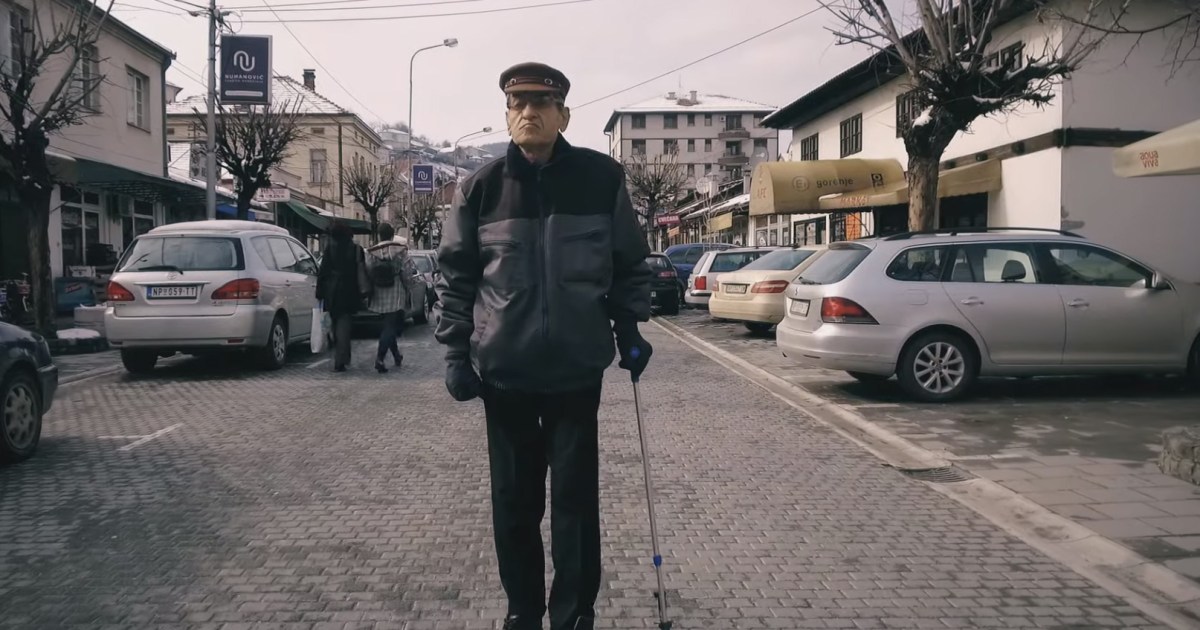In the fiery atmosphere of the Bosnia and Herzegovina war in the 1990s, numerous crimes against the Bosniaks in the Sanjak region of the Balkans were covered, including the police torture of more than 15,000 people during 1993 and 1994.
Serbian journalist Alexander Realjij revealed a documentary that sheds light on the suffering of the Muslim Bosniaks minority in the Sanjak region, and the oppression and oppression it was subjected to at the hands of Serbian forces, during the disintegration of the former Yugoslavia.
The documentary, entitled "Operation Sanjak", directed by Realjij, reflects the displacement, torture, exile, injustice and persecution that the Muslim minority in the region that is currently located between Serbia and Montenegro has suffered, coinciding with the continuation of the Bosnian war in the nineties of the last century.
Co-production
In response to Anatolia's questions, journalist Realjij said that the film was jointly produced by the Serbian company (Core Dox) and "Al-Jazeera Balkan" channel.
He added that the film deals with the aspect that the media and newspapers did not show during the violations against the Bosniak Muslim minority in Sanjak province.
"Very few people know what happened then in Sanjak province," he added.
He pointed out that the film also deals with the "Lim -" operation, in which the Serbian forces arrested 25 members of the "Democratic Action Party" in Sanjak in May 1993, and then the arrest of 21 other cadres from the same party in Montenegro.
The Serbian journalist stressed that these operations and arrests were a "prepared plan", citing the charges brought by the Serbian forces to the detainees, which were "preparing for armed action."
He pointed out that the detainees, during the "Lim" operation, were subjected to major torture by the Serbian police, and were finally forced to confess to crimes and charges they did not commit.
Ibrahim Gekij's story
And "Religj" reported the story of a Bosniak Muslim called "Ibrahim Gekij", indicating that the latter was among those arrested in the framework of "Lim" operations, and was imprisoned for two and a half years.
The Serbian journalist added, "Gekij" was charged with preparing for an armed sniper operation, but the interesting thing is that the aforementioned person has been blind for 20 years.
In this regard, "Realjej" expects that the documentary will face negative reactions in both Serbia and Montenegro, indicating that all the crimes committed in the Sanjak region have not been brought before international courts.
He also stressed that while many of the war crimes committed in Bosnia and Herzegovina remain without punishment, none of the war victims in the Sanjak region are also recognized.
It is expected that the film "Operation Sanjak" will be shown during the third edition of the "Jazeera Balkan Documentary Film Festival", sponsored by Anadolu Agency.
The aforementioned festival will screen 18 documentary films, 10 of which are inside the official competition. Among the participating films, six have an international character, eight are regional, and four are produced by Bosnia and Herzegovina.
The festival aims to encourage writers and documentaries that deal with social phenomena by focusing on universal human values, as it includes documentary films intended for television broadcasting.
The festival will last for five days between September 11 and 15, with the films participating in it tackling a number of global humanitarian issues from Syria, Palestine and the Philippines to Mexico.
Victims of torture
The author of the film, Alexander Riglik, spoke to Al-Jazeera Balkan about victims of police torture and the trials that took place in the 1990s.
Riglik said that the subject aroused his interest for a long time, as he began dealing with it intensively about eight years ago when he gave a special documentary presentation on the events of Sanjak entitled "Prisoners of the 1990s."
Later came the idea of preparing a documentary about the political trials, because they were neglected in the media coverage, and Rajlik says that the political trials that were organized in Sanjak were well thought out, stressing that the goal was to spread fear among the Bosnians in the Sanjak region, and thus expel them from the region, and he considered that The trials targeted respected people like professors, to intimidate residents.
On the other hand, the government was disarming the Bosniaks in a region full of weapons, and only them were disarmed while crimes against humanity were taking place nearby in Serbia, Montenegro and Bosnia and Herzegovina to expel the Bosniak population.
Riglik continues that after the signing of the Dayton Peace Agreement, the Montenegrin government abolished political detention, while the process continued in Serbia for the next 20 years, until the statute of limitations came into effect.
He added that "the release of political prisoners is part of the Dayton Accords," but Serbia refused to release everyone at once, and in Montenegro, those released did not receive a refund or proof that they were in fact not guilty.
Riglik indicated that it is very important to deal with evil, persecution and torture issues in this realistic documentary way - such as the one he presented with the upcoming film to be shown at the "Jazeera Balkan Documentary Festival" - so that it can be a guide and guide for new generations.

